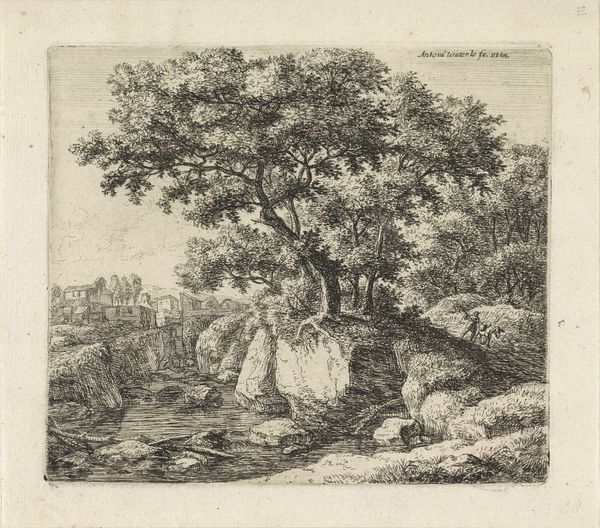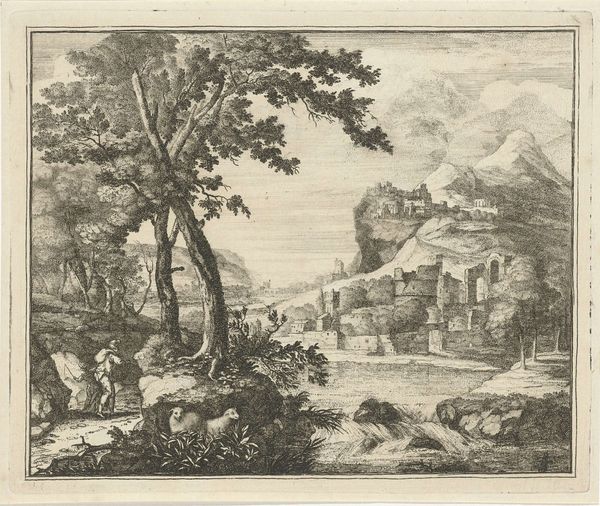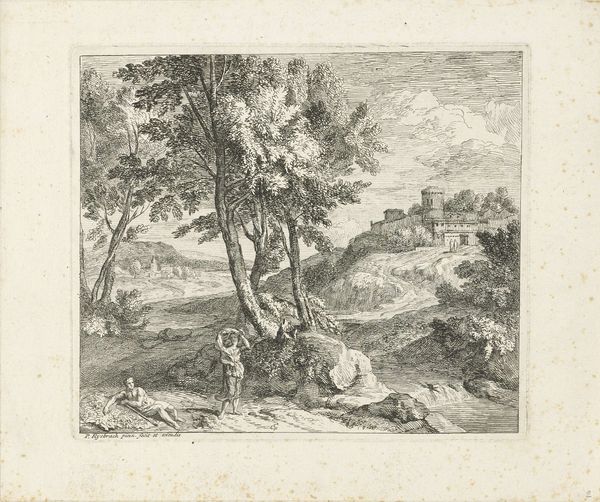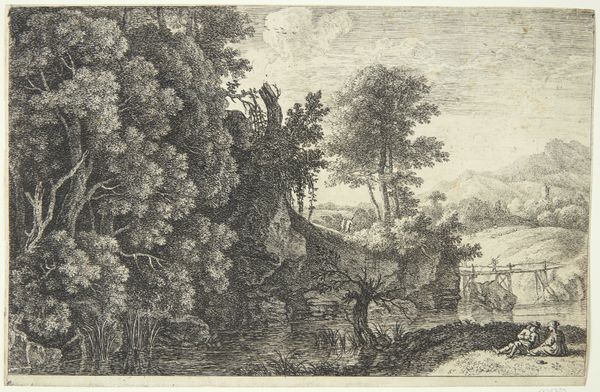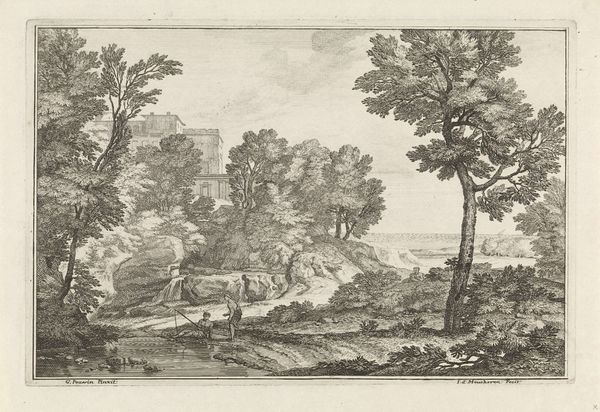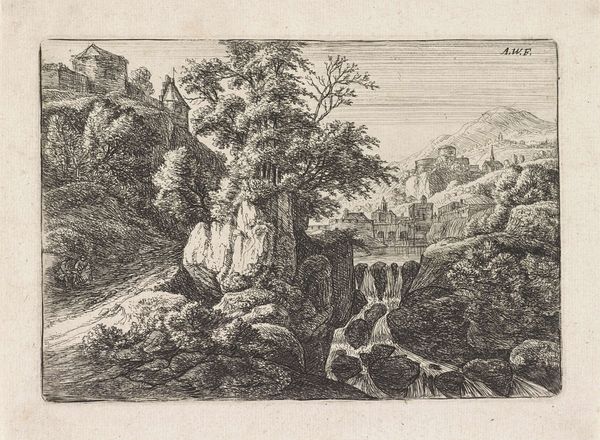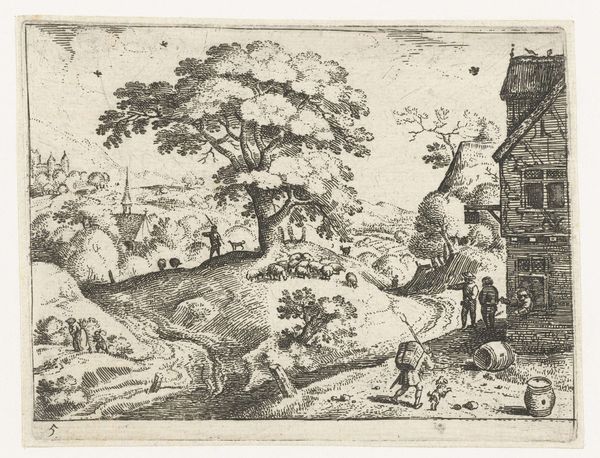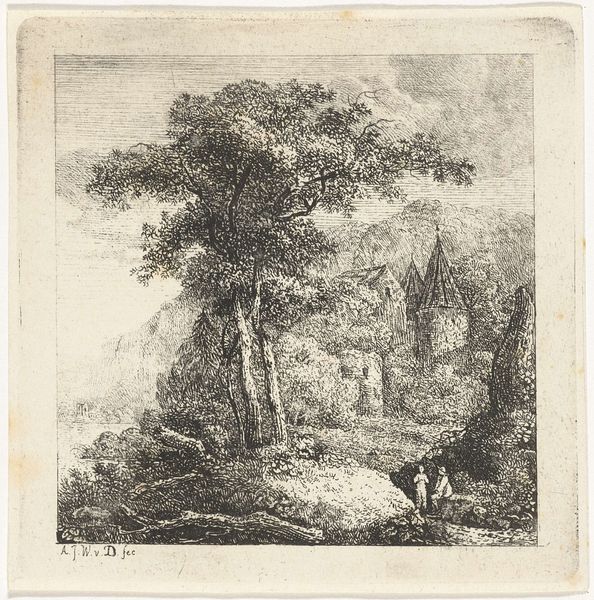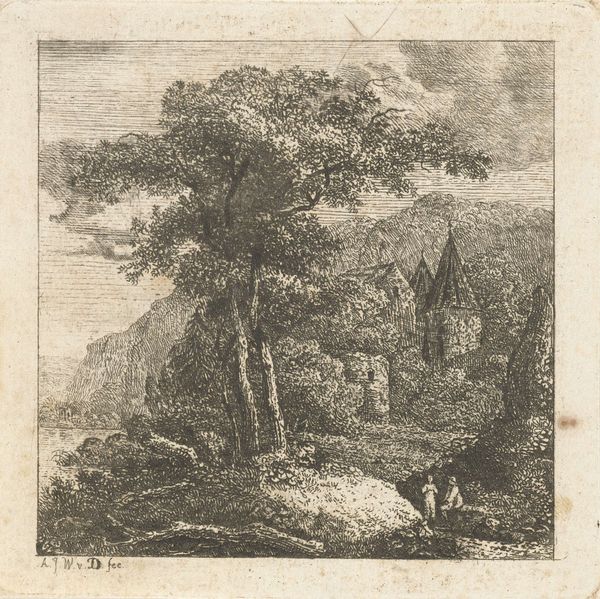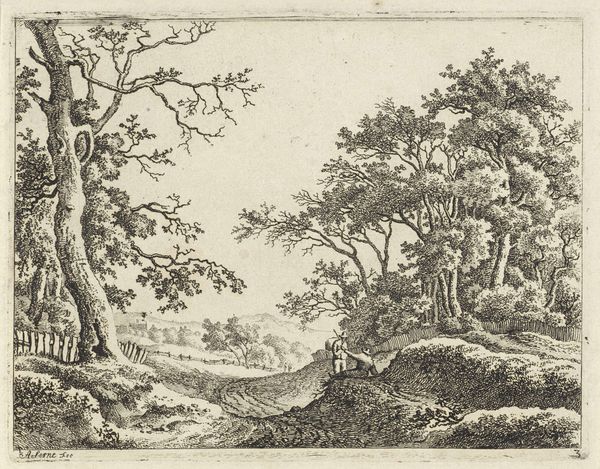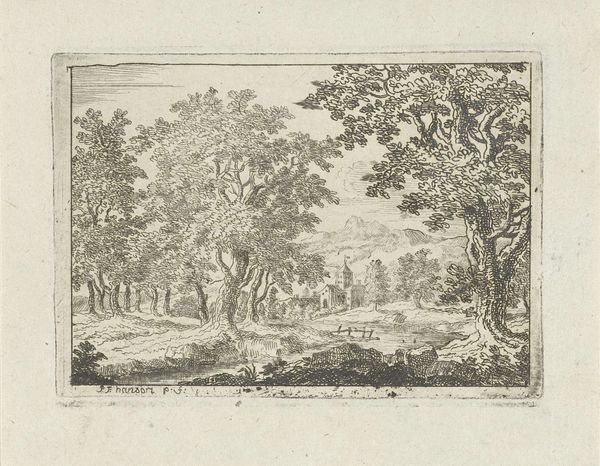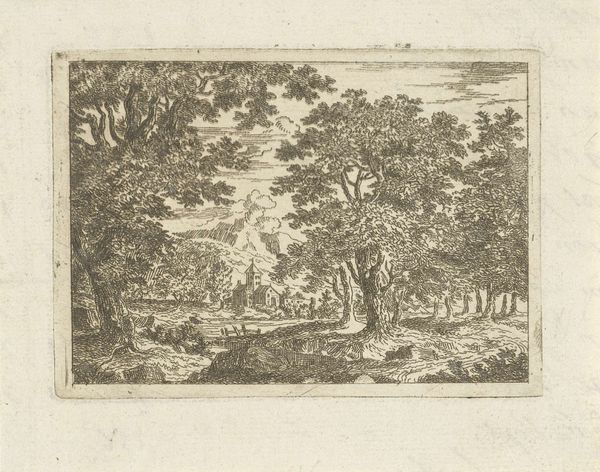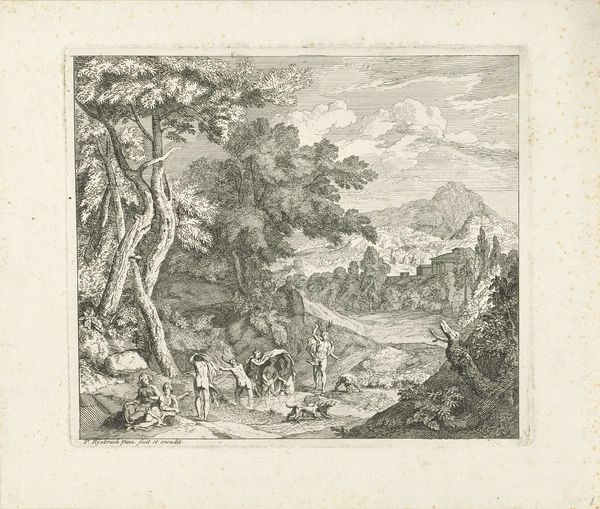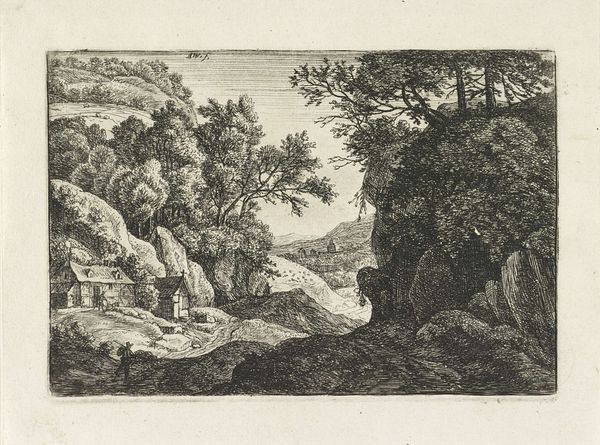
etching
#
baroque
#
etching
#
landscape
#
figuration
Dimensions: height 126 mm, width 150 mm
Copyright: Rijks Museum: Open Domain
Anthonie Waterloo made this print, "Landscape with Two Hermits," using etching, sometime in the 17th century. The etcher covers a metal plate with a waxy, acid-resistant ground. Using a needle, he scratches an image into the ground, exposing the metal. Then, the plate is immersed in acid, which bites into the exposed lines, creating grooves. The deeper the bite, the more ink the groove will hold. Finally, the plate is inked, the surface wiped clean, and the print is made by pressing paper against the plate. Look closely, and you can see how Waterloo deployed a whole repertoire of marks to create a sense of depth and light. Think of the time it took to make this plate. The fine detail suggests not only skill but also a dedicated work ethic. It really makes you appreciate the labor and artistry involved in producing these images, and the way printmaking democratized artmaking in early modern Europe.
Comments
No comments
Be the first to comment and join the conversation on the ultimate creative platform.
